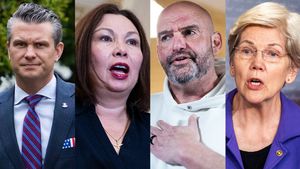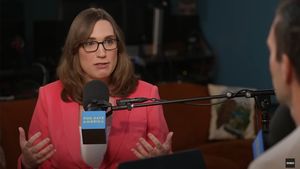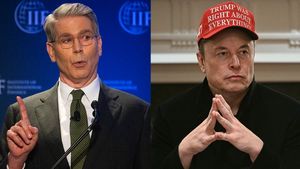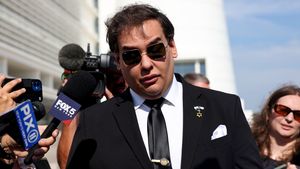At the end of the year, we usually mark World AIDS Day on December 1 and reflect both on where the epidemic has been, those we’ve lost to it, and on where we are today. In many ways we’ve progressed to astonishing heights with treatment.
Earlier this year, we launched U=U & U, Pride Media’s year-long initiative getting the word out about the groundbreaking consensus that people living with HIV with undetectable viral loads have zero risk of transmitting HIV to a sexual partner.
I’m sure when the Prevention Access Campaign launched its U=U campaign three years ago, the org had no idea how quickly the scientific world would back it up. But 2019 was really a watershed year. The very slow-to-change Centers for Disease Control and Prevention issued a statement saying that “for persons taking ART [antiretroviral therapy] as prescribed and achieving and maintaining viral suppression, there is effectively no risk of transmitting HIV through sex.” Got it? That means it’s impossible to transmit the virus to anyone so long as you have it under control.
Dr. Anthony Fauci, the director of the National Institute of Allergy and Infectious Diseases, a division of the National Institutes of Health, reiterated in an HIV.gov Facebook Live interview this summer, “U=U is the hallmark of what we’re doing because if you can get the infection level — the viral load — in any individual to below detectable, that person cannot transmit. That means U=U. If we accomplish U=U, if you think for a moment, what does that mean? That means we don’t have anybody transmitting infection. That’s what I mean when I say the concept of U=U is the foundation of being able to end the epidemic.”

Had more people understood this U=U concept, student athlete Michael Johnson could have graduated from college instead of spending the last five years in prison. Both poz men we featured in our recent “I Am the First” series — actor and cannabis entrepreneur Hernando Umana and professor and HIV leader Andrew Spieldenner — spoke on the issue. (That’s me with the guys above right!) And the U=U message is finally getting to people who need it most.

We also learned in the first HIV presidential survey that many of the Democratic presidential candidates understand U=U as well.
Publishing this historic survey, a week before our sister magazine The Advocate hosted an equally historic LGBTQ forum for the candidates, made me feel confident that many of the contenders have a grasp on the complex health inequities that those living with HIV — and the fight to end the epidemic — still face. (Note: President Trump and other presidential candidates were also sent the survey but as of press time have not responded.)

Many candidates have good policy proposals and impressive stigma-busting initiatives. Pete Buttigieg, the first out gay man to make it to a major debate, is particularly well-versed on HIV as you’d expect he’d be. Some candidates believe their policies will lead to massive change (Bernie Sanders’s Medicare for All plan, for example); others have more nuanced ideas, some of which don’t go as far as we’d like. Beto O’Rourke, Kamala Harris, Cory Booker, Elizabeth Warren, Joe Sestak, and Steve Bullock all took time to think about their positions on HIV — and that’s saying something.
What stuck with me, however, was Warren’s quote, which I keep mulling over: “There is no single answer to ending this epidemic — we must use every tool at our disposal,” she said. “That includes Medicare for All, expanding HIV research and treatment, ensuring everyone has access to PrEP and HIV testing, holding drug companies accountable and lowering drug prices, ending the opioid crisis, ensuring that community health centers receive robust funding, and reinstating our position as a global leader in public health. It also means expanding economic opportunities, tackling the housing crisis, banning private prisons and exploitative contractors, overturning HIV status criminalization and discrimination laws and regulations, and ensuring comprehensive, inclusive reproductive and sexual health education and services.”
Her statement was the one in this survey that made me think she really understands how complex tackling HIV is going to be as president. The truth is we have no idea who the Democratic presidential nominee will be, but simply knowing that folks like Warren have spent time compartmentalizing the impact HIV has on communities of color, on gay and bi men and trans women, on teenagers, on drug users and sex workers, and on your average suburban moms and dads living with HIV should give us hope.
This is still a Herculean effort getting people tested, on treatment, and undetectable — or to practice PrEP if negative. But it’s the closest we’ve ever been to an end. Here’s to what 2020 brings.
Happy holidays!




















































































